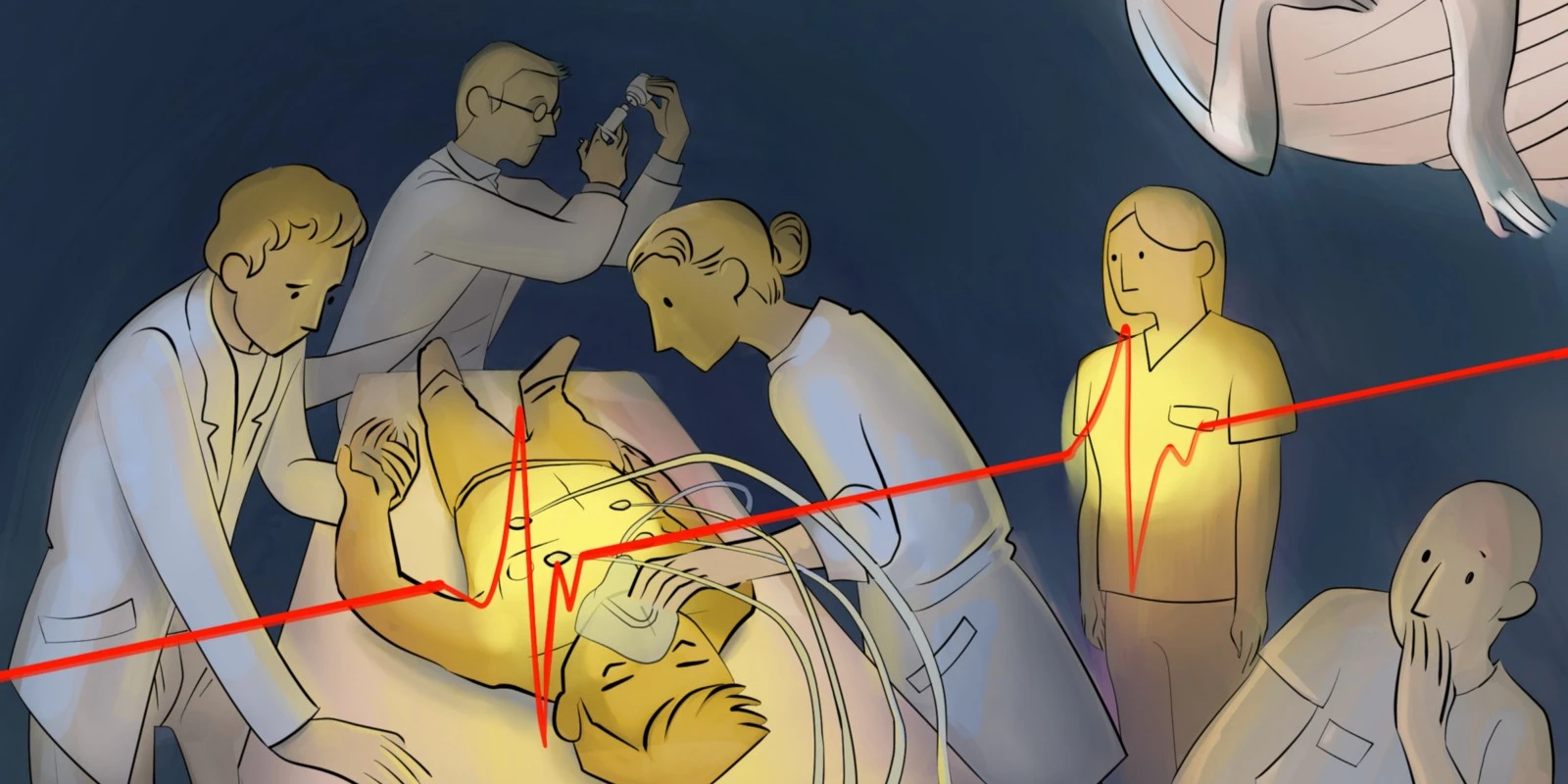A Poem & Conversation with Astrid Grouls, MD

Code Blue
Code blue rings overhead.
A heart has stopped, as does my own-
The hospital springs into frenzy-
I’m halfway down the hall already.
Don’t panic. Don’t panic.
Those friendly words on the cover of a fictional book
Never ring quite as true as now.
Never ring quite as true as now.
The first pulse to check is always your own.
It’s steady. It could be steadier.
My heart pumps to the beat of those words in my head.
Don’t panic. Don’t panic.
A simple blue light flashes overheard at the door
Like a little beacon to guide your way
As if the stream of personnel and the crowd at the door aren’t obvious.
You could hear a pin drop in any other part of the unit
But you can barely hear yourself think in the room.
The thump of compressions,
The owl screech of the bag mask,
The squeak of the wheels on the crash cart as it bangs through the door,
The steady tone on the monitor,
It’s a symphony of organized chaos as people spring into action,
A conductor in a coat at the foot of the bed.
It's almost automatic. Anesthesia is intubating.
Nurses flushing lines.
Another line forms for compressions.
A medical student cowers in the corner.
An intern tries to be helpful at the door.
Pharmacy mixes meds.
The conductor
Trying to keep the train on its tracks
Keeping time and harmony,
the calmest one in the room.
The body lies at the center.
Ribs crunching. Chest bouncing.
Mouth invaded by the ET tube.
Hands everywhere.
IVs inserted. Veins pumped full of fluids.
A resident stands at the computer.
Trying to put the pieces together.
What happened to bring the person to this point?
Why are they just a body at the center of attention now?
Did we miss something?
Shouting out pieces of information
How do we fix this?
Pulse check.
The room holds its collective breath.
Pause. Breathe. Think.
Don’t panic. Don’t panic.
Pulse. We have a pulse.
Are you sure?
More hands reach in.
Carotid. Peripheral. Inguinal.
Pulse. We have a pulse.
What inspired this piece and why did you choose poetry for this topic?
This piece was inspired by a Code Blue that was called one relatively quiet holiday morning, and by other experiences I have had throughout my training witnessing codes. In this particular case, the patient was on isolation for possible tuberculosis, and I observed the code from the door, guarding it to make sure no one broke the airborne precautions. It was an odd experience to be outside looking in.
I had long wanted to write about this experience of just standing outside a door watching a code. In general a code is one of the most organized types of chaos that I find happens in a hospital. Every time I hear a code blue overhead I remember to always check my own pulse before I walk in the door. I’m not sure where this advice came from, but it does do well to calm me down and focus in these serious situations. This piece was inspired by that overall experience and I feel the cadence recommended by poetry aids that overall feel.
How long have you been writing poetry? How did you get into it and have you published any other pieces in the past?
I haven’t been writing poetry for long — I’m often too shy to share my pieces — though I have journaled and written a variety of short pieces. While I usually write short pieces, I sometimes find the brevity and structure of a poem lend themselves well to particular topics. I have started writing again in residency, primarily as a way for myself to self-reflect. All of my writing continues to pertain to my day-to-day work with patients and some extraordinary circumstances they and I face.
Astrid Grouls, MD is a 2nd year internal medicine resident at UTHealth McGovern Medical School in Houston, Texas. She hopes to pursue a fellowship in Palliative and Hospice Medicine. Her interests include the arts, painting, cooking, clinical ethics, medical history and snail mail.







